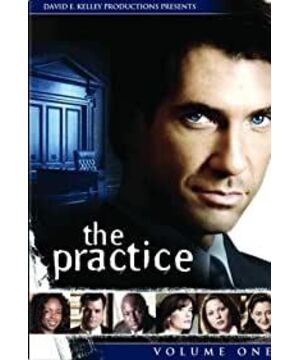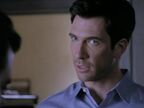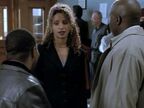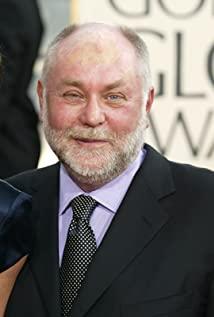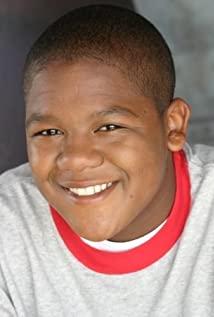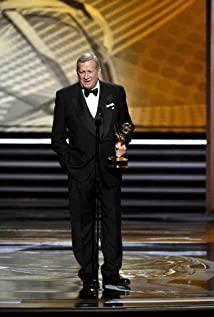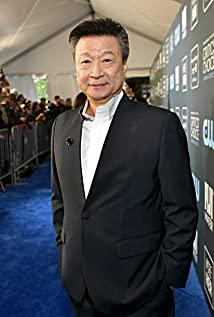The Practice (online translated as "lawyer nature") can be regarded as a prequel to Boston Legal, both screenwriters are David Kelley. In the final season of The Practice, Alan played, and a semi-excellent legal drama was born. In order to meet the expectations of many Boston Legal fans, Feng Ruan recently did the eighth season of The Practice, and it hastily released, and just watched the first episode. I previously promised to write something about Boston Legal with a friend, but I haven't done it. After so long, I just start with the prepost The Practice. I hope I like it.
In the first episode, Alan made his debut (Alan was still thinner at the time, not as fat as he is now), and he also took over a case: a poor but slightly paranoid guy kissed him on the street. Believing that the beauty looks like Harry Berry, the beauty filed a criminal complaint. When Alan appeared, he had come to apply for a job, but was forcibly assigned by his messy partner to handle the case and went to court immediately because the court was about to begin. After Alan took over the case, he was "blackmailed" by the defendant-asking Alan to buy him clothes and shoes, so that he can dress up and appear in court neatly (this is helpful to win the favor of jurors and judges). This case is actually very simple. The plaintiff can easily win, but Alan is unwilling to lose, so he played small tricks and bribed the plaintiff privately to reach an agreement, let the plaintiff change his words, withdraw the criminal charge, and change it into a false civil lawsuit. The defendant’s insurance company paid $10,000. This kind of little trick is disgraceful and even illegal, but to Alan, it is just a ridiculous and trivial matter: the plaintiff also wants money, and it doesn’t matter whether the defendant is in jail or not, then everyone does not care. The best of both worlds. This case may have set the fuse for his being fired.
In fact, from the perspective of the plot, the most exciting thing in this episode is not the case handled by Alan and him, but the murder case handled by the other two lawyers. A certain black residential area in Boston is flooded with drugs. Drug dealers trade in broad daylight, and many local children are involved in the drug trade, but the police and other law enforcement officials have turned a blind eye to this. Naturally, the deteriorating public security situation is inevitable with the vicious current of drug proliferation, and the black forces are rage from time to time. The defendant in this case, the 2-year-old daughter of a black woman named Aisha Crenshaw, was murdered in a rage three years ago. Hit and killed. One day, a drug dealer who often sells drugs in the neighborhood where Aisha is selling drugs to the children in the neighborhood, Aisha wants to drive him away out of grief and righteous indignation, and then quarrels. Later, Aisha returned home to retrieve a pistol and fired three shots in a row to kill the drug dealer on the spot.
The case is also very simple and the evidence is complete. According to the law, Aisha clearly constitutes a murder, which means that Aisha will spend the rest of his life in prison. In the case of nowhere to go, in order to win, the defense lawyer intends to use temporary insanity (translatable as "temporary insanity." Adopted) came to defend her and persuaded Aisha to accept and cooperate in court. But Aisha is firm. She doesn’t want to justify herself with temporary insanity. She just wants to tell the society: I decide to do something to protect the kids on our street. They will be released immediately, and it will be innocent residents who will bear the cost (The screenwriter here also expressed his opposition to the Bush Administration’s tax cut plan. Tax cuts have reduced public expenditures and worsened community security. Those who enjoy the benefits of tax cuts are The rich, but the poor suffer the disadvantages).
The judge also made it clear in the court that both "self-defense" and "defense against others" are both untenable defenses. Under this circumstance, even the lawyers believe that there is no doubt about the guilt. Even if the jurors can disagree and come here for a retrial, it does not make much sense. Although drug trafficking is a crime, even if the government neglects its duty, ordinary citizens cannot replace the state to kill drug dealers, and individuals cannot exercise public power. The law opposes murder, and murder is a crime. At this time, the prosecution is also willing to enter into a "plea bargain", convicted of second-degree murder, although it is still life imprisonment, but can be released on parole, otherwise it is first-degree murder, life imprisonment without parole. However, Aisha still rejected the plea bargain request of the defense lawyer's eyes staring at the jurors to tell them:. The law is wrong
defense attorney to the judge prohibited from doing, "self-defense" and "defense of others" sham defense of the ban, fees In front of the jury, he tried his best to emphasize that Aisha killed drug dealers in violation of the law to protect his children and protect his own community. The fundamental reason is still the government's negligence. The law to protect the people has become a document. If Aisha is found guilty, it will be made. The law that became a document evolved into an unjust law. The defense lawyer quoted Martin Luther King as saying that when facing unjust laws, the most ethical way is to break it. The defense lawyer's words sound very contagious, but if we carefully consider the reason and purpose of human beings to establish a constitutional state and enact laws, these reasons still cannot excuse Aisha. As the prosecutors have emphasized, the state has not delegated law enforcement power to private individuals, and individual citizens cannot ignore the law and enforce the law according to their own standards. If everyone shoots according to their own standards, it would be terrorism: As soon as this case is opened, the rule of law disappears, and society can easily fall into disorderly self-relief violence, and everyone may become a victim.
One is the lack of concrete justice, and the other is the abiding by the entire social contract. Both have their own reasons. This kind of dilemma is actually more common in China today. People set up a country to defend the people. However, in some places, the country ignores the interests of the people, causing the social order in some areas to get out of control. In order to achieve justice, people have to open history. Reversing, using the method of private relief, return to the original tragedy of blood revenge. There are too many such things, with different forms and varying degrees of severity, but their essence is the same. Not long ago, the Fuwocheng incident in Guizhou was a typical case. At this time, the existence of the country is not only meaningless for everyone to protect the people from evil, but also imposes sanctions on those who have to avenge blood relatives to seek justice because of despair, pushing the existing evil into a deeper abyss of evil.
Even so, we have to admit that this kind of primitive private relief is unacceptable for the entire society, and the justice achieved in this way is not justice that the entire society can bear. No matter how dereliction of duty the government is, we cannot abandon this organizational form of the state and the rule of law under constitutional government, because at least we have not yet found a better form of social organization. Therefore, intentional murderers must be punished by law.
The outcome of the case was beyond everyone's expectations, and the jury quickly reached a unanimous decision: Aisha Crenshaw, Not Guilty.
If this is a real case, as a law student, I do not approve of this judgment. It is easy to make such a judgment, but then I have to face a tragedy: it is easy to say objections, but there is nothing I can do to maintain the most basic justice in the world. Aisha told reporters after the sentence was pronounced that the Second Amendment to the Constitution gave them the right to use guns to protect themselves, "We, the people need to rise up to do our job." Aisha's method of resistance is too costly, no matter what she wants Against whom. Perhaps clarifying and separating the two concepts of state and government can be the endorsement of the above sentence, but for the weak and weak, such as Aisha and many Chinese people who are in a worse situation than Aisha, this is actually only far away. The fantasy is nothing.
View more about The Practice reviews


